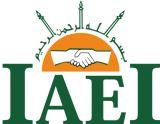HALAL SUPPLY CHAIN MANAGEMENT INDUSTRI PARIWISATA
Abstract
Keywords
Full Text:
PDF (Indonesian)References
Adinugraha, M. I. & H. H. (2021). LIKUID: Jurnal Ekono mi Indu str i Hal al -ISSN:2797- 5967 (e). LIKUID: Jurnal Ekonomi Industri Halal, 2(1), 1-16.
Basyariah, N. (2021). Konsep Pariwisata Halal : Perspektif Ekonomi Islam. Youth & Islamic Economic Journal, 02(01), 1-6.
Battour, M., & Ismail, M. N. (2016). Halal tourism : Concepts , practises , challenges and future. 19, 2015-2017.
Hanifah, R. D. (2020). Potensi Halal Tourism Di Indonesia. Jurnal Hospitality Dan Pariwisata, 7(1), 95-108. https://journal.ubm.ac.id/index.php/hospitality-pariwisata/article/view/2463
Jafari, J., & Scott, N. (2014). Annals of Tourism Research Muslim world and its tourisms. Annals of Tourism Research, 44, 1-19. https://doi.org/10.1016/j.annals.2013.08.011
KNEKS. (n.d.). Strategi Nasional Pengembangan Industri Halal Indonesia.
Kristiane, D. (2021). LABELISASI HALAL DAN HARAM. Tadayun: Jurnal Hukum Ekonomi Syariah. http://tadayun.org/index.php/tadayun/article/view/21
Pinem, M. et al. (2021). ANALISIS HAMBATAN PENGELOLAAN HALAL TOURISM DI PULAU WEH SABANG. Geoghraphy, 9(2), 91-101.
Republik Indonesia. (2009). Undang-undang RI Nomor 10 Tahun 2009.
Sofyan, R. et al. (2020). Laporan Perkembangan Pariwisata Ramah Muslim Daerah.
Sonjaya, J. B., Ceha, R., & Selamat. (2020). Supply Chain Management pada Pariwisata Halal di Kabupaten Garut. Prosiding Teknik Industri, 6(1), 1-8.
Sukoso, et al. (2020). Ekosistem Industri Halal. Departemen Ekonomi dan Keuangan Syariah Bank Indonesia.
Wibowo, M. G. (2020). Indeks Pariwisata Halal (Implementasi Fatwa DSN MUI Tentang Pedoman Penyelenggaraan Pariwisata berdasarkan Prinsip Syariah di Kota Bukittinggi). JESI (Jurnal Ekonomi Syariah Indonesia). https://ejournal.almaata.ac.id/index.php/JESI/article/view/1506
Yakub, A. P. (2019). Pengaruh sektor pariwisata terhadap pertumbuhan ekonomi di indonesia.
DOI: http://dx.doi.org/10.30821/se.v0i1.17100
Refbacks
- There are currently no refbacks.













